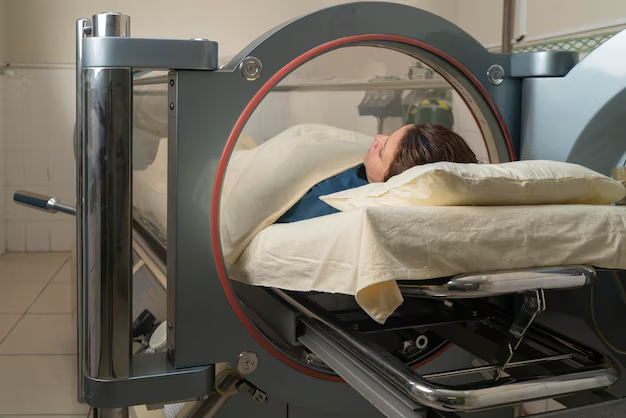Understanding the Warning Signs: Do I Have Cancer?
Cancer is a word that none of us wants to hear, yet it's a reality that affects millions of lives across the globe. Early detection can make a significant difference in treatment outcomes and recovery. But knowing when to seek medical advice can be challenging. Here’s a comprehensive guide to help you understand the signs and next steps if you’re concerned about cancer.
The Importance of Awareness
Cancer encompasses over 200 different diseases characterized by the uncontrolled growth of abnormal cells. While the warning signs vary depending on the type, staying informed about general symptoms can prompt timely medical evaluation. Awareness can be your most powerful tool in catching cancer early.
Common Warning Signs
While some symptoms might be trivial in other contexts, when persistent, they warrant a closer look. Here’s what to watch for:
Unexplained Weight Loss: Losing more than 10 pounds without effort might be an early sign of cancer in organs like the pancreas, stomach, or lungs.
Fever: Persistent fever could signal leukemia or lymphoma. It's often one of the first signs.
Fatigue: This is more than just feeling tired. It’s profound weakness or exhaustion that doesn’t improve with rest, a symptom that could be linked to leukemia among others.
Pain: Consistent pain can be an early indicator of bone or testicular cancer.
Skin Changes: Look for new moles or changes in existing ones, as well as any pigmentation changes or spontaneous bleeding.
Specific Symptoms Based on Cancer Type
Different cancer types present unique symptoms. Here are a few examples:
Breast Cancer
- Lumps or Thickening: Any new lump or mass should be checked.
- Nipple Changes: Look for inverted nipples or unusual discharge.
Colon Cancer
- Bowel Habit Changes: Persistent diarrhea, constipation, or stool changes in color or consistency.
- Abdominal Discomfort: Cramping or bloating that doesn’t go away.
Lung Cancer
- Chronic Coughing: Especially coughing up blood, should be evaluated promptly.
- Shortness of Breath: Any difficulty breathing requires immediate assessment.
When to Seek Medical Advice
It’s crucial to consult a healthcare professional if any symptoms persist for more than a couple of weeks, worsen, or are accompanied by other concerning signs. Even if they don’t seem severe, early evaluation is key.
Medical Evaluation and Diagnosis
Initial Consultation
Prepare for Your Appointment: Be ready to discuss your symptoms' duration and any lifestyle factors or family history that might be relevant.
Questions Your Doctor Might Ask:
- When did you first notice the symptoms?
- Have you noticed any additional symptoms?
- Do any activities worsen or relieve these symptoms?
Diagnostic Tests
Depending on your symptoms, a doctor might recommend:
- Blood Tests: Look for markers that may indicate cancer.
- Imaging Tests: Such as X-rays, CT scans, or MRIs, to spot abnormalities.
- Biopsy: A tissue sample to determine the presence of cancer cells.
Being informed and proactive can reduce anxiety and lead to better outcomes.
Living a Proactive Lifestyle
Incorporating healthier habits can lower your cancer risk and aid in early detection:
Regular Checkups
Routine health screenings and cancer-specific tests can catch potential issues early. Discuss screening schedules with your doctor, especially if you are at higher risk.
Healthy Habits
- Balanced Diet: Rich in fruits, vegetables, whole grains, and lean proteins.
- Regular Exercise: Helps maintain a healthy weight and boosts immune function.
- Avoid Tobacco and Limit Alcohol: Both are linked to various cancers.
Monitoring Your Body
Listen to your body and pay attention to any changes. Keeping a symptom diary can be helpful when consulting your doctor, providing a clearer picture of your health over time.
Psychological Considerations
Anxiety and Fear
The fear of cancer can be paralyzing. It’s crucial to separate anxiety-induced symptoms from real concerns. Engaging in strategies like mindfulness or seeking professional mental health support can provide balance in these situations.
Support Systems
Lean on friends and family for emotional support and consider joining support groups for people with similar health concerns. Sharing experiences and coping strategies can be incredibly comforting.
The Significance of Early Detection
Engaging actively with your health by understanding symptoms and risk factors can make a difference. Early diagnosis opens up more treatment options and can increase survival chances.
Empowering Your Health Journey
Staying informed and vigilant is a positive step toward managing your health proactively. It’s about being empowered to make informed decisions rather than living in fear of the unknown. Regular communication with your healthcare provider based on observed symptoms ensures that you’re doing everything possible to maintain your health.
Quick Summary
- Be Alert: Keep an eye on persistent symptoms like unexplained weight loss, fatigue, or skin changes. 🕵️♂️
- Consult Early: For ongoing or severe symptoms, seek a medical opinion. 🩺
- Tests and Diagnosis: Expect possible blood tests, imaging tests, or biopsies if symptoms persist. 🔬
- Stay Proactive: Maintain healthy lifestyle choices and engage in regular checkups. 🏃♀️
- Seek Support: Utilize emotional and professional support systems. 🤗
Remember, the objective is not to self-diagnose but to arm yourself with the knowledge that prompts timely professional consultation. This informed approach could be pivotal in addressing health concerns effectively.

Related Articles
- Are Breast Cancer Lumps Painful
- Are Chills a Sign Of Cancer
- Are Colon Spasms a Sign Of Cancer
- Are Lytic Lesions Always Cancer
- Are Polyps Cancer
- Can a Blood Test Detect Cancer
- Can a Ct Scan Detect Cancer
- Can a Dexa Scan Show Cancer
- Can a Gastric Emptying Scan Show Cancer
- Can a Lung Biopsy Cause Cancer To Spread
